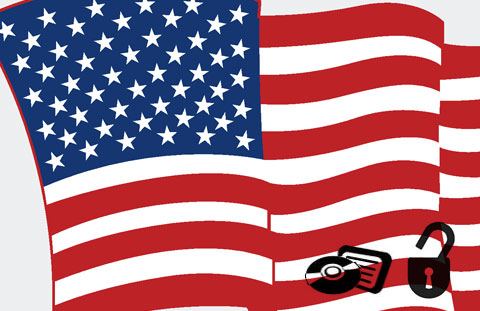In a historic new ruling today, the Library of Congress has allowed unlocking or jailbreaking all cell phones and bypassing a DVD’s CSS, all legally under the Digital Millennium Copyright Act (DMCA). Before all you tech savvy kids get over excited, there is obviously a catch, well a few actually. You’re only allowed to tweak and jailbreak your phone to install legally obtained software and companies are still allowed to put in all sorts of protections to ruin your endeavours. What’s more, they can still take action against you for illegal infringements and it’s still illegal to distribute any “technology, product, service, device, component or part thereof that’s primarily designed to break access controls”.
The new exemptions regarding bypassing the anti-copying technology used in DVDs is also conditional to “documentary filmmaking, non-commercial videos, and educational uses”. The exemption does not allow people to make backup copies for their own use or making backup copies of videogames and Blu-Ray discs.
Though cell phone companies have the right to sue users over jailbreaking their devices, no cases have ever been filed. Still Apple had reservations about the new exemptions and it sent a letter to the American Copy Right Office to draw attention towards potential threats. Apple feared that allowing jailbreaking would result “in copyright infringement, potential damage to the device and other potential harmful physical effects, adverse effects on the functioning of the device, and breach of contract.” The company claims to receive practically millions of complaints from users regarding hardware and software problems in jailbroken iPhones every year.
The six “classes” now exempt from prosecution under the DMCA are:
1. Defeating a lawfully obtained DVD’s encryption for the sole purpose of short, fair use in an educational setting or for criticism.
2. Computer programs that allow you to run lawfully obtained software on your phone that you otherwise would not be able to run e.g. Jailbreaking to use Google Voice on your iPhone.
3. Computer programs that allow you to use your phone on a different network e.g. Jailbreaking to use your iPhone on T-Mobile.
4. Circumventing video game encryption (DRM) for the purposes of legitimate security testing or investigation.
5. Cracking computer programs protected by dongles when the dongles become obsolete or are no longer being manufactured.
6. Having an ebook be read aloud (ie for the blind) even if that book has controls built into it to prevent that sort of thing.

[via CrunchGear]
You Might Also Like:
Like this post? Post Comment and Subscribe RSS
